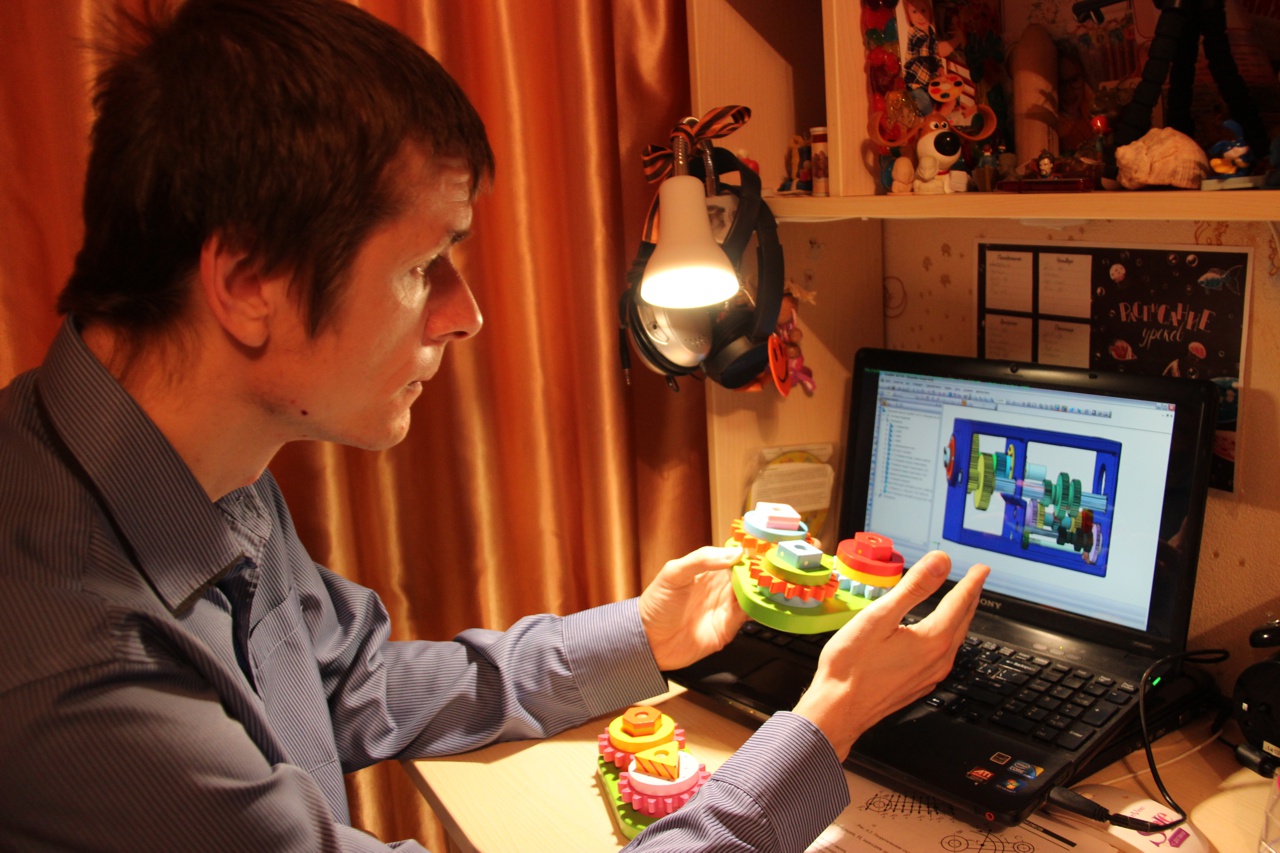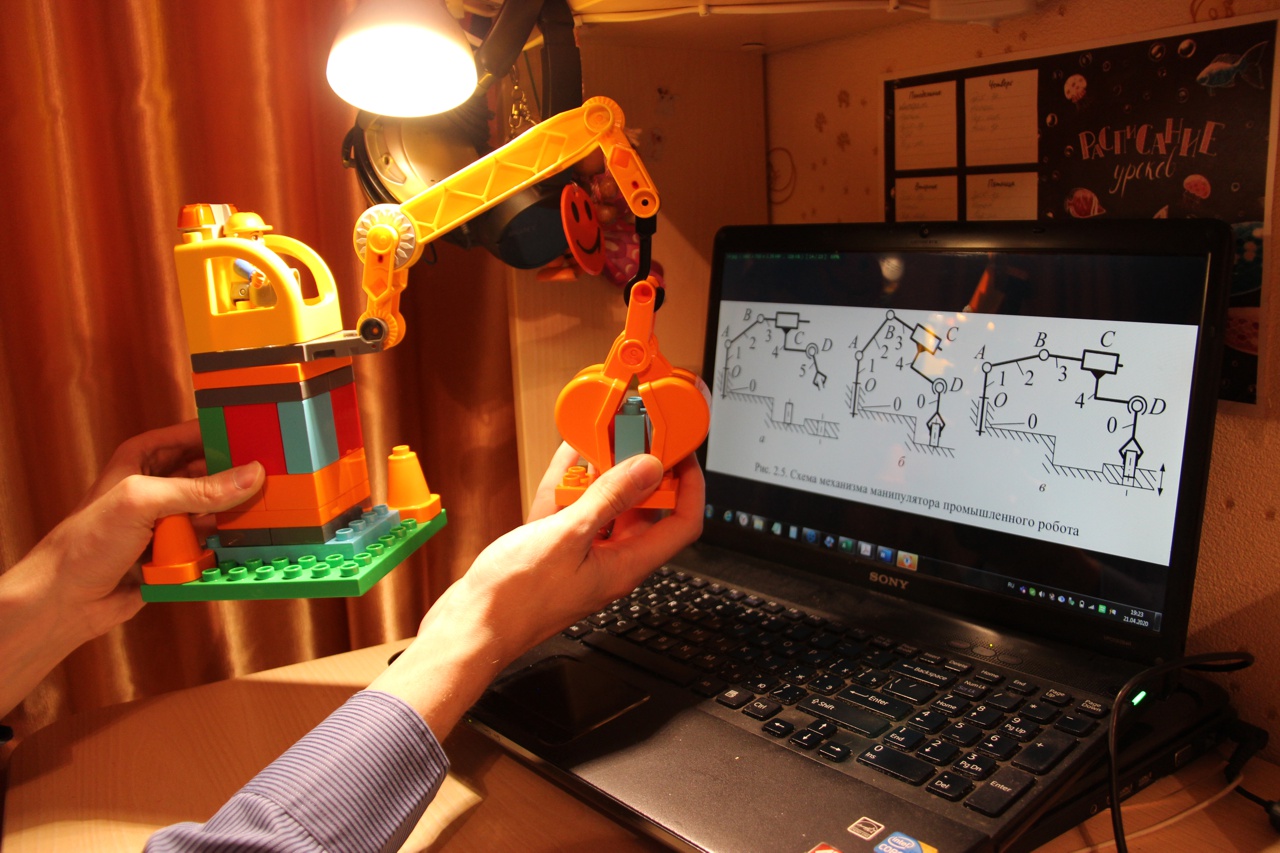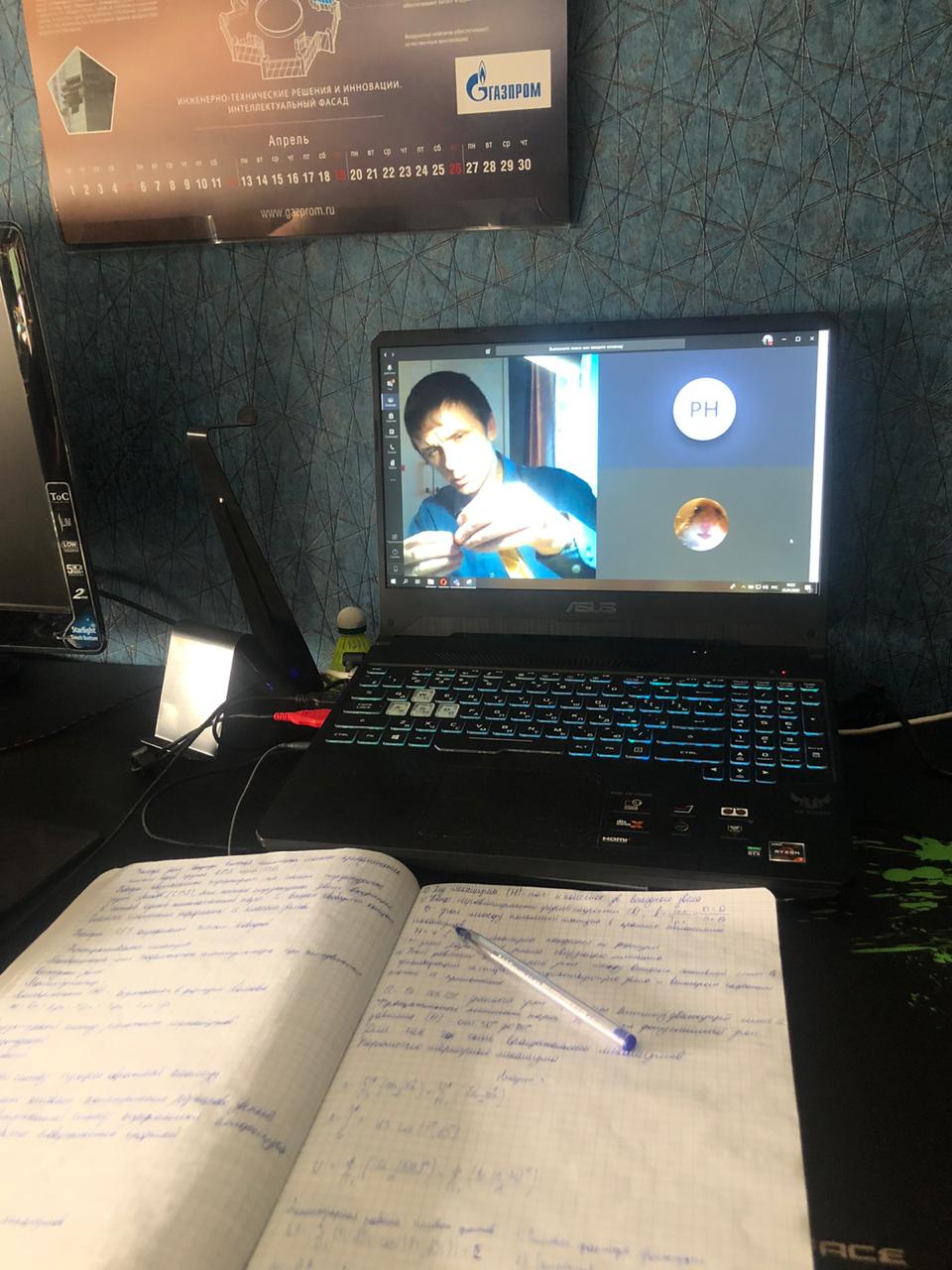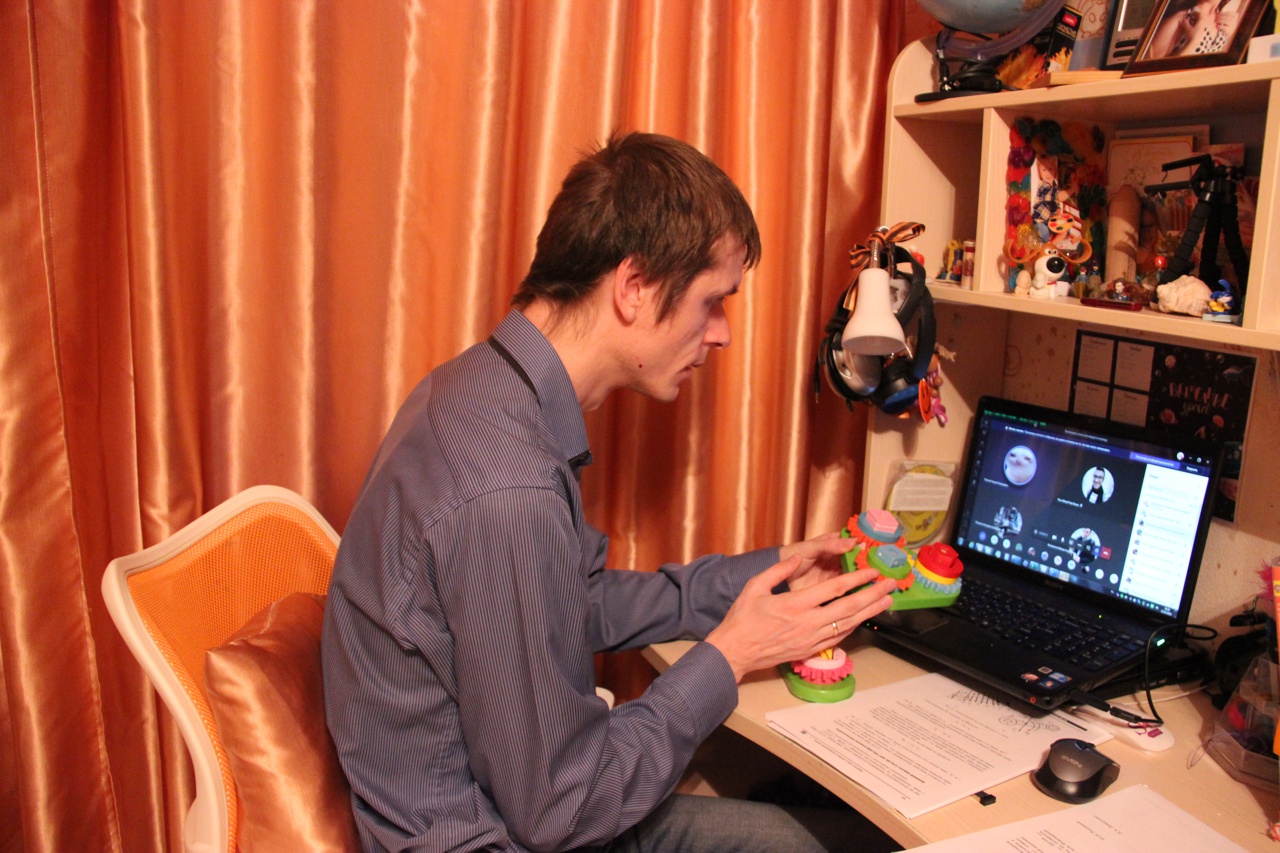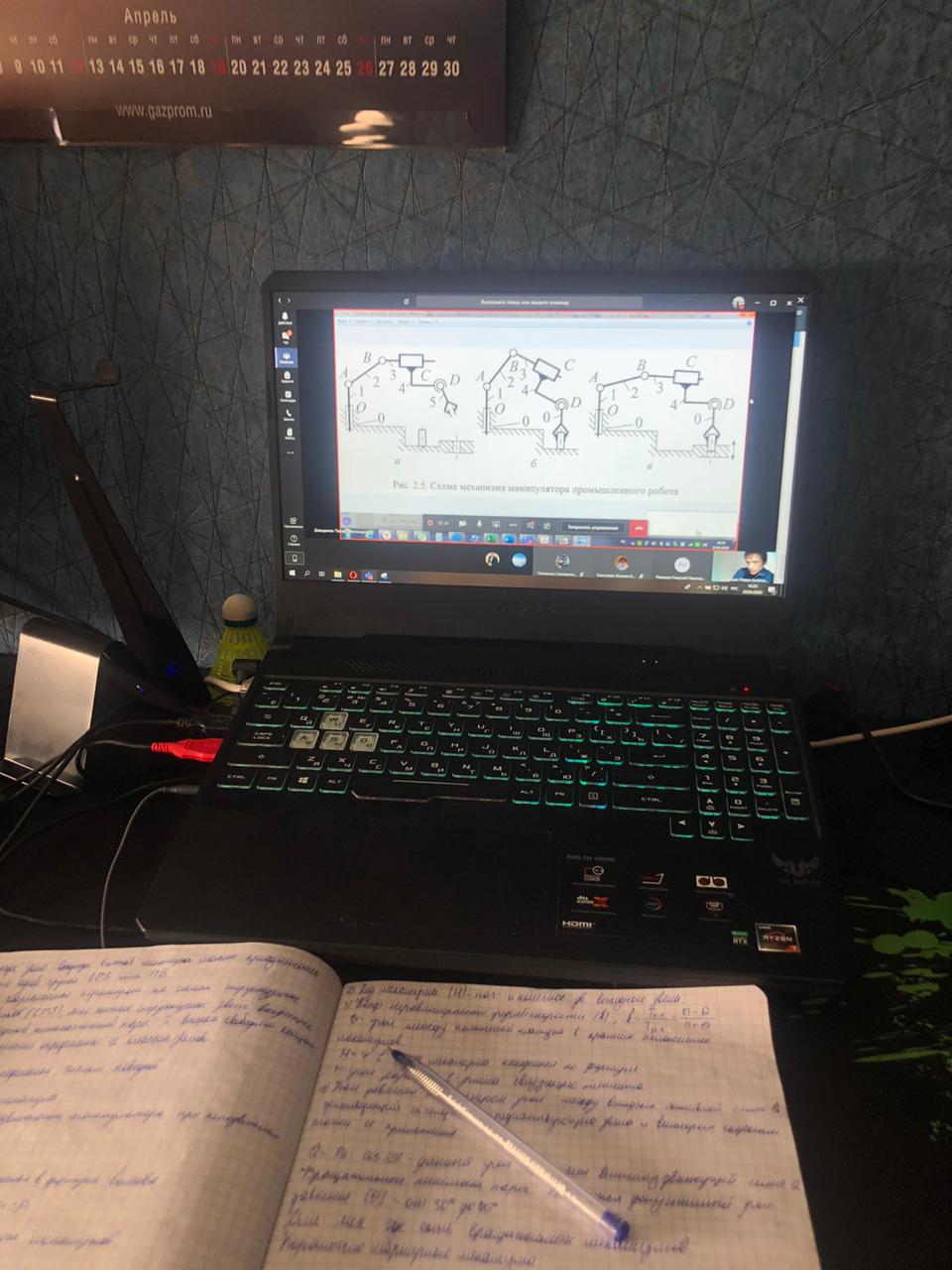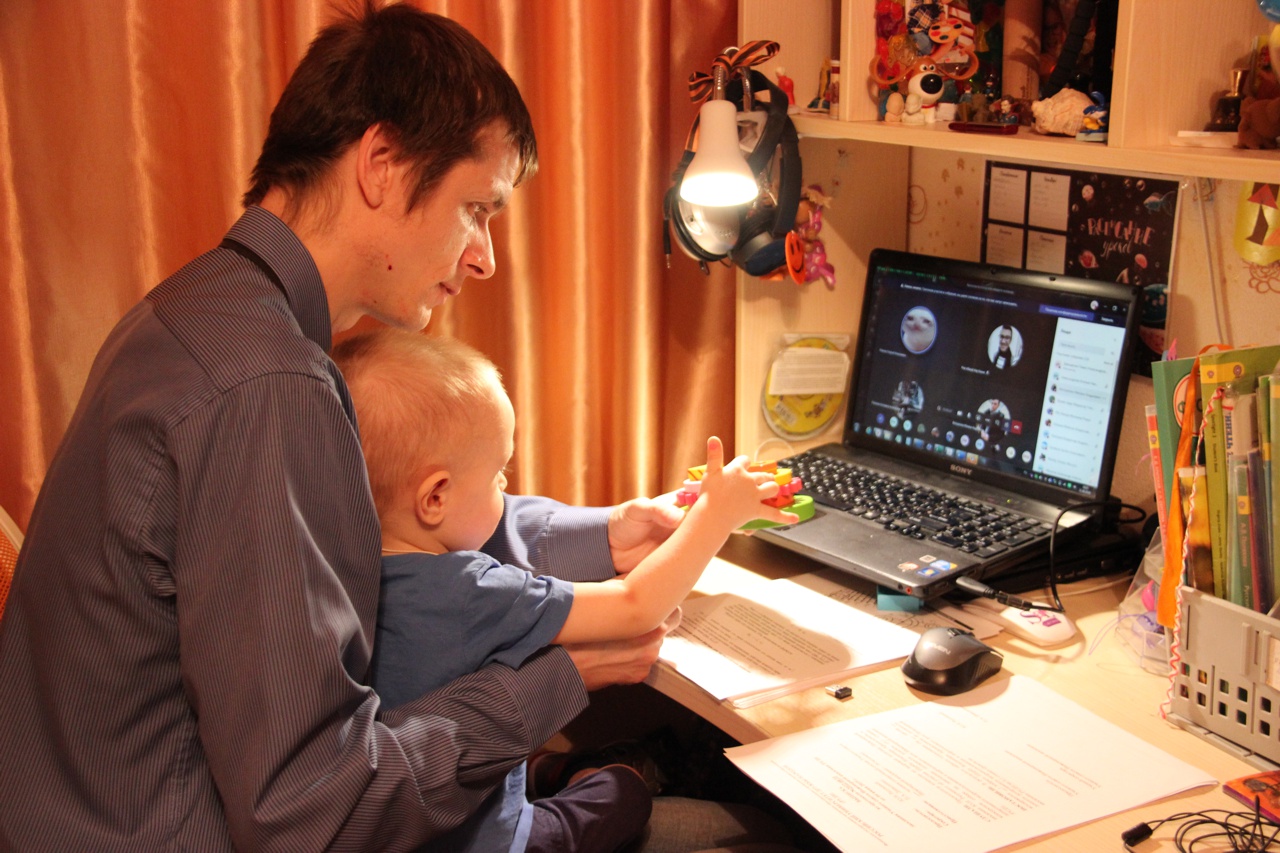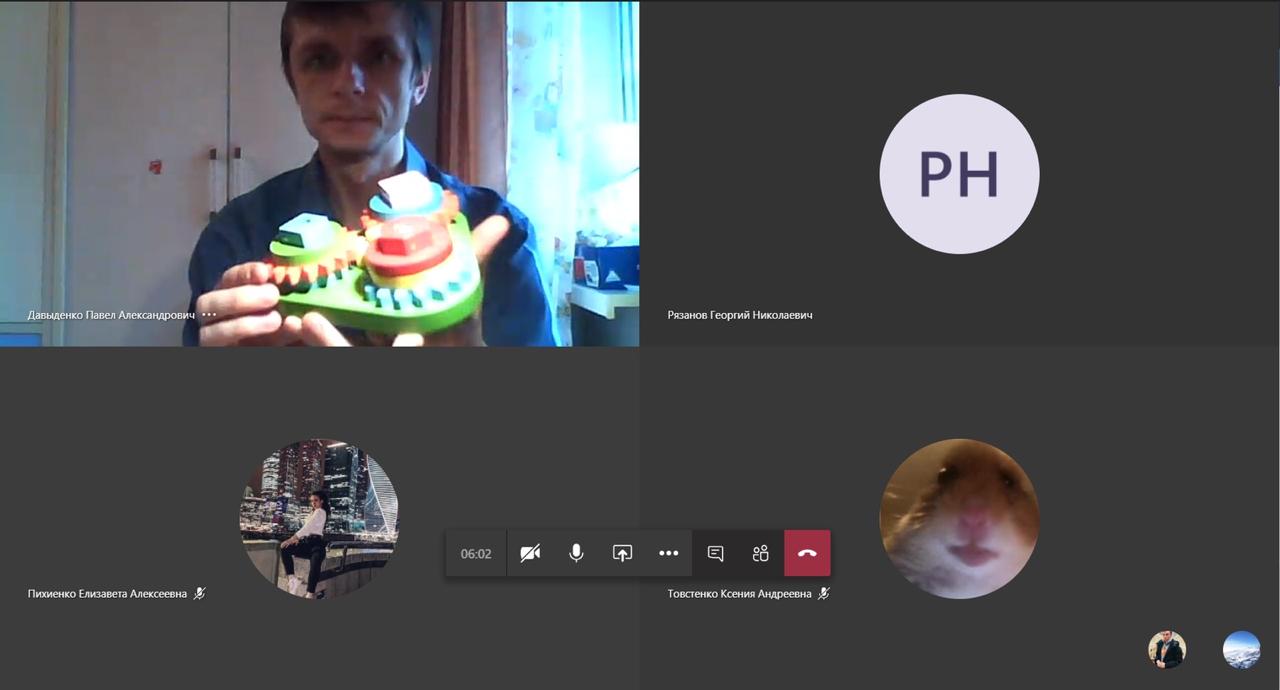“I miss those moments when you see a question in the eyes”, assistant professor Pavel Davydenko
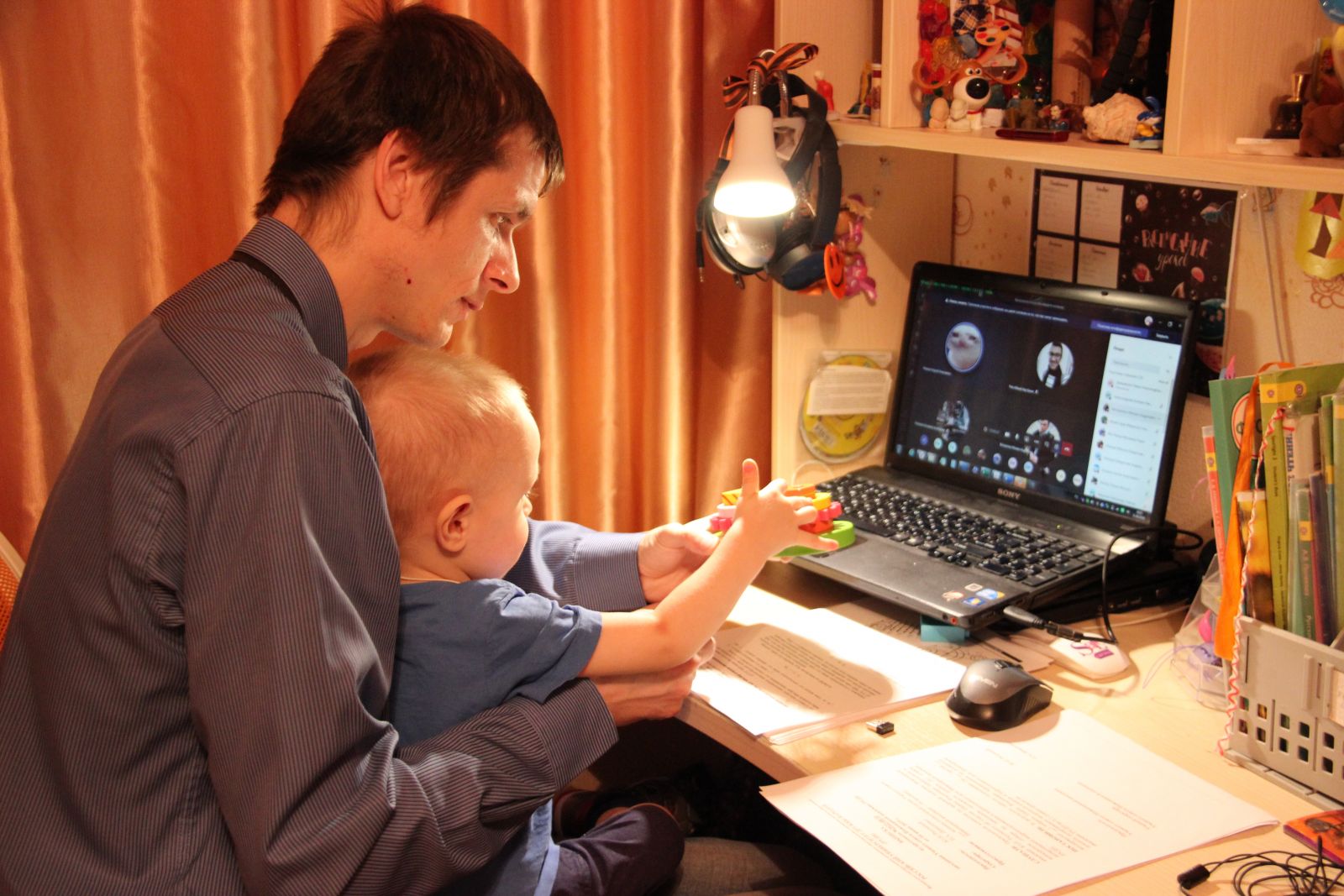
Basically, I use screen demonstration for broadcasting and explaining graphic and video materials. However, I spend some time communicating with students “face to face” and show visual constructions from life on the subject of the lesson. For example, I take some of my son Sasha's educational toys and show how the gear train is made and how movement is transmitted. Children’s construction kits help to explain the principle of operation of the industrial robot manipulator and movement in rotational kinematic pairs. Since students see me, I need to look decent - for classes, I change clothes. Together with my daughter Polina, we put things in order on her desk - for the time of self-isolation, she lets me use it after her distance lessons at school.
What did you discover when working online?
I found that conducting individual and group online consultations is very effective and convenient. From time to time, students have the same questions. During face-to-face classes, each of these questions had to be answered separately. Now you can record one detailed consultation and do not have to repeat the same thing all over again.
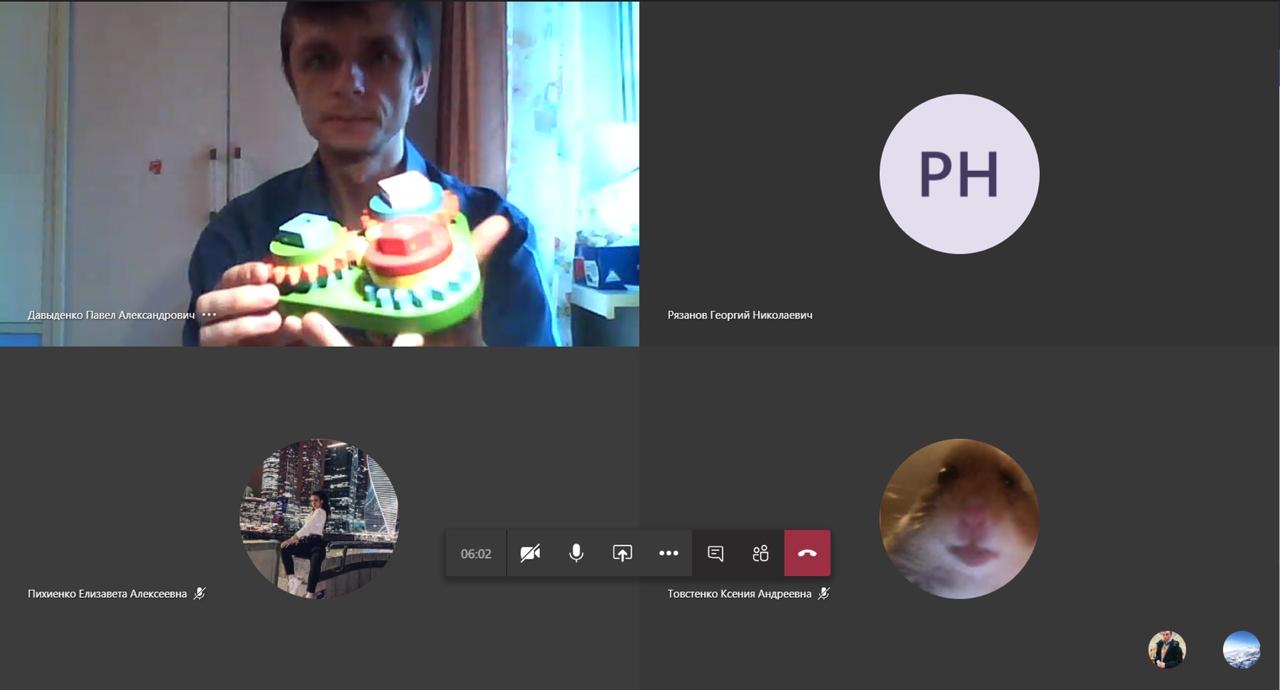 And what was the most difficult thing when switching to distance learning?
And what was the most difficult thing when switching to distance learning?
I had an online training course "Theory of Mechanisms and Machines (TMM)" downloaded in RUDN telecommunication system. I transferred the laboratory workshop to MS Teams – I use this platform to meet students in the classroom. It turned out to be a very convenient structure of the software product: the team has a common channel, it is possible to make additional subgroups and give them joint tasks.
So far, the most difficult thing is to instantly evaluate the effectiveness of the assimilation of material by each student. Students have different approaches to preparing for video-conferencing classes. Some take the position of a passive listener and go about their business, listening to a lecture through an app on the phone.
How do you test students' knowledge? Do they report orally, do projects, make presentations and drawings?
Lectures, practical exercises, course project - this is a huge amount of work for both students and teachers. The main emphasis now is on independent work: students solve practical tasks, make calculation, explanatory and graphic parts in the format of drawings of the course project. I form tasks for these works in RUDN telecommunication system and Microsoft Teams. Students perform work in special design programs and send it to me. I check the work and make comments. If somebody needs advice, they go to Teams. If there are questions requiring a quick answer, students write a question on WhatsApp and attach a photo of a version of the drawing.
However, I pay attention to the brightest answers during lectures and analyze practical work – it helps understand the degree of assimilation of theoretical material. Every week I update grades - it is important that students see their progress.
Just in case, I want to play safe, and now I’m working on a methodology for conducting an exam and defending course projects online. There is an idea to use the Wheel of Fortune software product, which would be interesting to use when a student chooses a ticket for an exam. I saw it at Chinese language lessons of my daughter and started learning it with her. I’m also thinking about practical tasks in examination tickets in an interactive form using problem situations.
What helps you concentrate when working from home? What advice on self-discipline can you give?
Work from home can relax not only students, but also teachers. It is really not easy to concentrate - family and home are not associated with work. However, it is support and understanding of the family that allows you to switch to worktime mode. I am preparing for classes, checking assignments, answering letters and doing research in the early morning, late evening, and during children's daytime nap.
Self-discipline comes to the fore. It is necessary to demand from yourself rather than from students. I try to comply with this principle.
Can a virtual laboratory replace a real one?
We must remember that fully distance education is just a necessity today. There are, of course, many advantages: no need to waste time on getting to work and back, using information technology tools. Online format is convenient for lectures and some seminars. But there are also disadvantages that for engineering areas can cross out all the advantages. I really miss our laboratory of the theory of mechanisms and machines. I found some good videos on how mechanisms work. In laboratory work, free software for structural, kinematic, and dynamic analysis (Universal Mechanism Lite, Linkage, DIADA, TMM Constructor) helps.
A virtual laboratory is, in essence, a computer model of a real place in which some professional skills can be formed. Students can watch processes and phenomena that are difficult to see in a regular lab, and observe processes that occur in reality in a split second or in several years.
Such laboratories give a lot of opportunities like studying kinematics and dynamics, however, the virtual format significantly narrows the possibilities of practical training: you cannot use some equipment, conduct classes in specialized conditions, production practices at enterprises are limited. This significantly hampers professional competencies formation.
What do you especially miss?
I miss the atmosphere of RUDN University as a whole, days full of events, exchanging opinions with colleagues ... But the main thing is live communication with students. Those moments when you see a question in the eyes. The very name of the form of training - “full-time” (ochny in Russian) - speaks of the opportunity to teach, looking in the eyes (ochy in Russian).
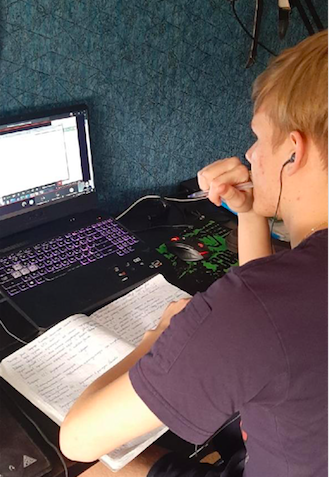
The most difficult thing for an engineer in online training is practical study of the material. Due to the fact that we are at a distance with the teacher, we cannot consider the mechanisms in more detail. The only alternative is to come up with new approaches. Pavel Alexandrovich turned a simple children's construction kit into visual aid and, in addition to the diagrams, showed the principle of operation of an industrial robot manipulator and movement in rotational kinematic pairs.
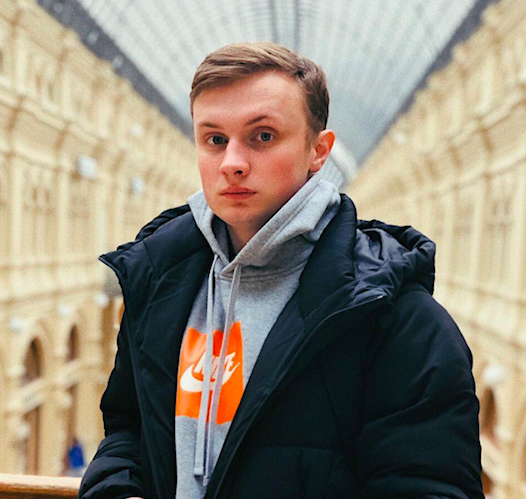 It’s a pleasure to attend Pavel Aleksandrovich’s lessons. He does a great job not only to explain, but also demonstrate the work of complex mechanisms. He uses reduced dynamic copies of machine structures that demonstrate the mechanism’s work, shows thematic films and presentations. Each week we are given a practical task on the options, for example, over the past 7 days we have been working with flat-link mechanisms, doing their metric synthesis, making velocities plan, accelerating plans and kinematic diagrams. Of course, full-time training cannot be replaced by anything, but even so, the material is assimilated, if the teachers are serious about their work.
It’s a pleasure to attend Pavel Aleksandrovich’s lessons. He does a great job not only to explain, but also demonstrate the work of complex mechanisms. He uses reduced dynamic copies of machine structures that demonstrate the mechanism’s work, shows thematic films and presentations. Each week we are given a practical task on the options, for example, over the past 7 days we have been working with flat-link mechanisms, doing their metric synthesis, making velocities plan, accelerating plans and kinematic diagrams. Of course, full-time training cannot be replaced by anything, but even so, the material is assimilated, if the teachers are serious about their work.
In honor of the 65th anniversary of the Peoples' Friendship University of Russia named after Patrice Lumumba, the Digital Pre-University Faculty gives a unique opportunity to RUDN foreign alumni to communicate in Russian and their family members to study Russian together with the best professors of RUDN.
The new list of federal innovation platforms (FIP) of the Russian Federation includes 30 new organisations. Among them is Peoples' Friendship University of Russia named after Patrice Lumumba. This became possible thanks to the development of the Digital Pre-University Faculty of RUDN.
December 15, Minsk hosted the IX International Student Olympiad in Human Anatomy. It was attended by 9 teams from Russia and Belarus. Students of RUDN took two 3rd places in the theoretical and practical rounds.
